Daniel Ma
ECG-Adv-GAN: Detecting ECG Adversarial Examples with Conditional Generative Adversarial Networks
Jul 16, 2021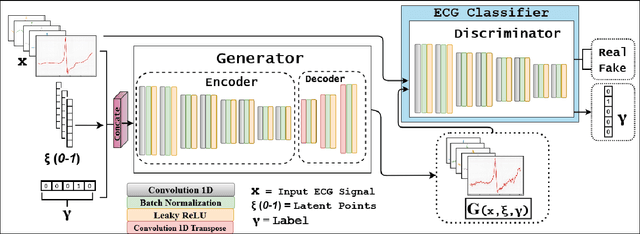
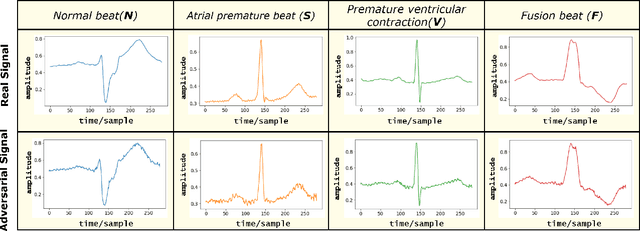

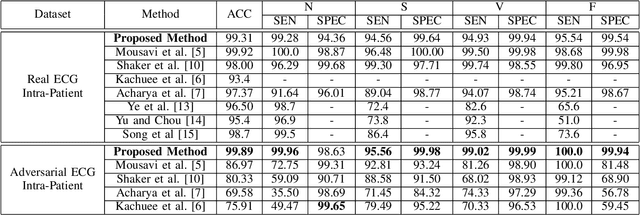
Abstract:Electrocardiogram (ECG) acquisition requires an automated system and analysis pipeline for understanding specific rhythm irregularities. Deep neural networks have become a popular technique for tracing ECG signals, outperforming human experts. Despite this, convolutional neural networks are susceptible to adversarial examples that can misclassify ECG signals and decrease the model's precision. Moreover, they do not generalize well on the out-of-distribution dataset. The GAN architecture has been employed in recent works to synthesize adversarial ECG signals to increase existing training data. However, they use a disjointed CNN-based classification architecture to detect arrhythmia. Till now, no versatile architecture has been proposed that can detect adversarial examples and classify arrhythmia simultaneously. To alleviate this, we propose a novel Conditional Generative Adversarial Network to simultaneously generate ECG signals for different categories and detect cardiac abnormalities. Moreover, the model is conditioned on class-specific ECG signals to synthesize realistic adversarial examples. Consequently, we compare our architecture and show how it outperforms other classification models in normal/abnormal ECG signal detection by benchmarking real world and adversarial signals.
OrigamiSet1.0: Two New Datasets for Origami Classification and Difficulty Estimation
Jan 14, 2021

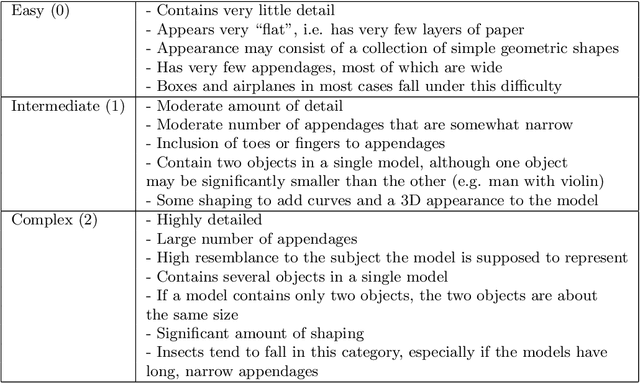
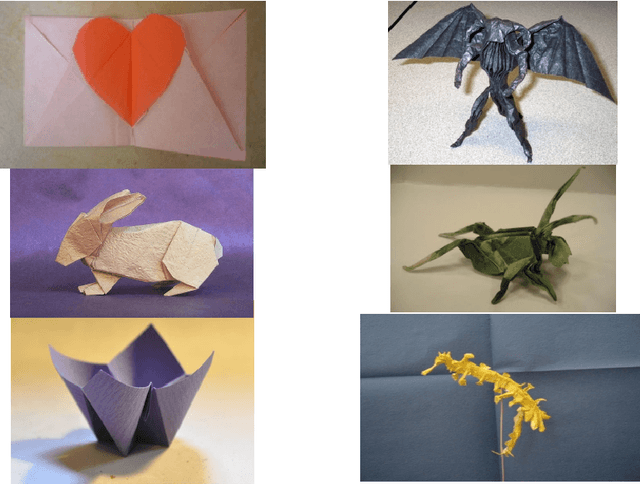
Abstract:Origami is becoming more and more relevant to research. However, there is no public dataset yet available and there hasn't been any research on this topic in machine learning. We constructed an origami dataset using images from the multimedia commons and other databases. It consists of two subsets: one for classification of origami images and the other for difficulty estimation. We obtained 16000 images for classification (half origami, half other objects) and 1509 for difficulty estimation with $3$ different categories (easy: 764, intermediate: 427, complex: 318). The data can be downloaded at: https://github.com/multimedia-berkeley/OriSet. Finally, we provide machine learning baselines.
 Add to Chrome
Add to Chrome Add to Firefox
Add to Firefox Add to Edge
Add to Edge